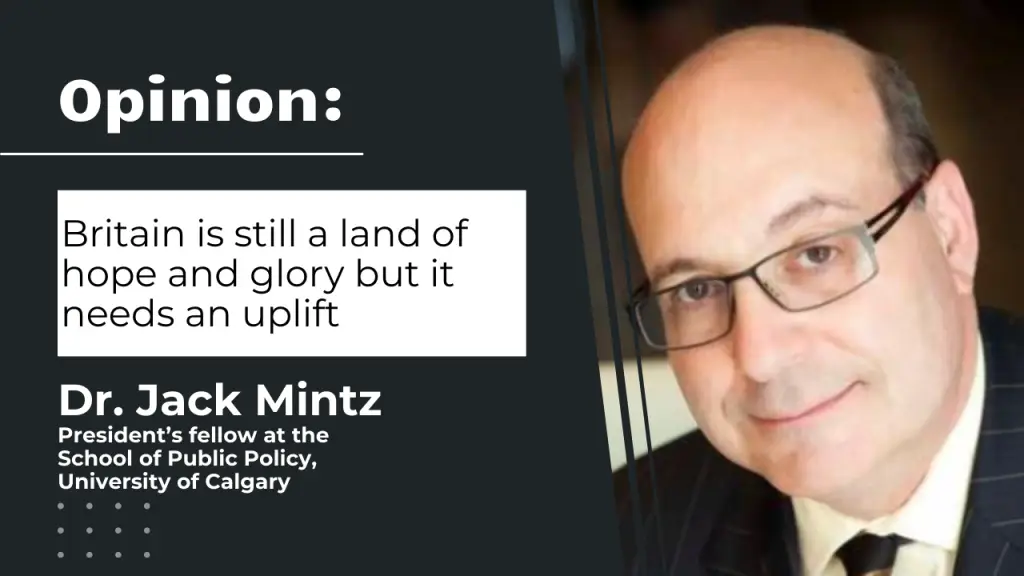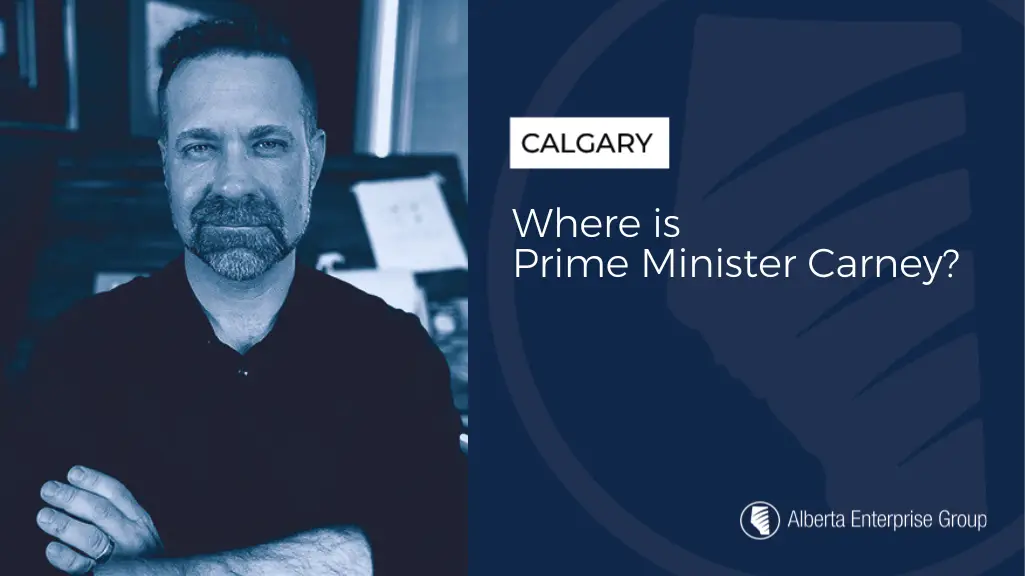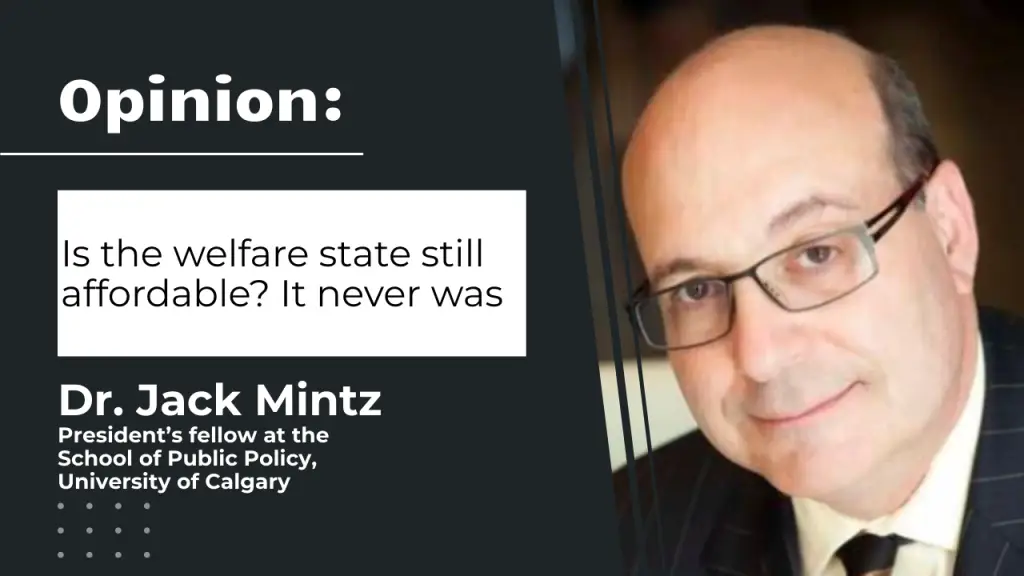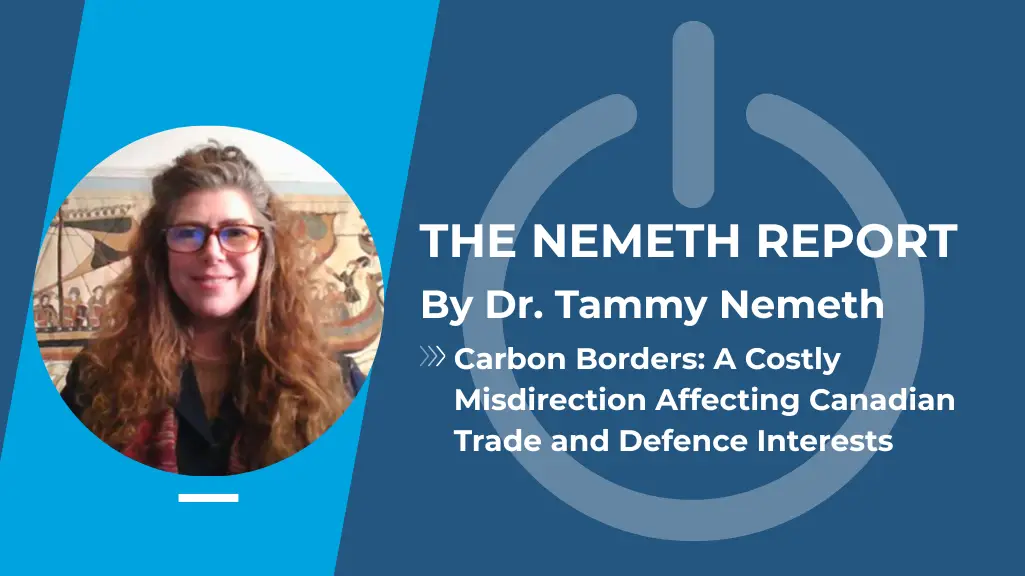Alberta’s historic frustration with Liberal federal rule is easing under Prime Minister Mark Carney. Premier Danielle Smith notes new common ground, and AEG President Catherine Brownlee highlights advances in regulatory reform, energy sector recognition, and joint carbon capture projects – signalling a pragmatic, collaborative era for Alberta-Canada relations.
Britain remains a nation of hope and glory, but its collective spirit today needs a fresh lift. In his latest column, Jack Mintz reflects on the enduring optimism captured in Elgar’s Land of Hope and Glory – a melody that still resonates even as the country moves beyond its imperial past. He argues that while the UK’s historic confidence endures, a new wave of cultural and economic revitalization is essential to keep that hope alive.
Ottawa’s “major projects” list under Bill C‑5 promises fast‑tracked approvals, yet most initiatives are approved or under construction. An open letter to Prime Minister Mark Carney from Canada’s top energy leaders spotlights a deeper issue: an investment climate hampered by excessive taxation and bureaucratic delays. AEG supports their call for a streamlined system that benefits every sector and fuels Canada’s growth.
While some question if North American governments will ease mandatory climate disclosure, global trends show reporting is staying. From California’s new laws to the EU’s Corporate Sustainability Reporting Directive, climate disclosure is becoming essential. Beyond compliance, effective reporting can reveal inefficiencies, cut costs, and create revenue, turning a perceived burden into a competitive edge.
The Alberta Next Panels give citizens a direct role in shaping the policies that affect our communities, businesses, and economy. Running through September, these conversations invite Albertans to move past division and work together on solutions that reflect our province’s diversity. At AEG, we believe Alberta is strongest when every voice is heard – let’s seize this chance to shape our future together.
Canada is navigating a complex trade landscape with the U.S., as the country faces potential economic repercussions from ongoing tariff disputes. With Parliament in recess and a federal budget for 2025 still pending, premiers are grappling with provincial budgets in the absence of federal guidance. As the deadline for tariff negotiations approaches, the future of Canada’s economic strategy remains uncertain.
Premier Danielle Smith’s call for public consultations on nuclear power is a pivotal step for Alberta’s future. At Alberta Enterprise Group, we see nuclear as one of the safest, cleanest, and most reliable ways to meet rising demand while powering growth, cutting emissions, and strengthening energy sovereignty.
Canada’s economy depends on the strength of small and mid-sized enterprises, yet rising tariffs are driving up costs and challenging competitiveness. As growth slows and businesses face mounting pressure, supporting SMEs will be key to ensuring long-term prosperity.
Governments across Europe and North America are facing a stark choice: maintain expansive welfare states or meet rising NATO defence commitments. With aging populations, mounting debt, and sluggish growth, leaders in Germany, Spain, Canada, and France are beginning to admit the welfare state may no longer be affordable. The question is whether voters will agree.
Is Canada heading down the wrong path by copying Europe’s Carbon Border Adjustment Mechanism? Dr. Nemeth’s article explores how adopting the EU’s model could burden Canadian exporters, strain U.S. relations, and why a smarter path lies in trade diversification on Canada’s own terms.











